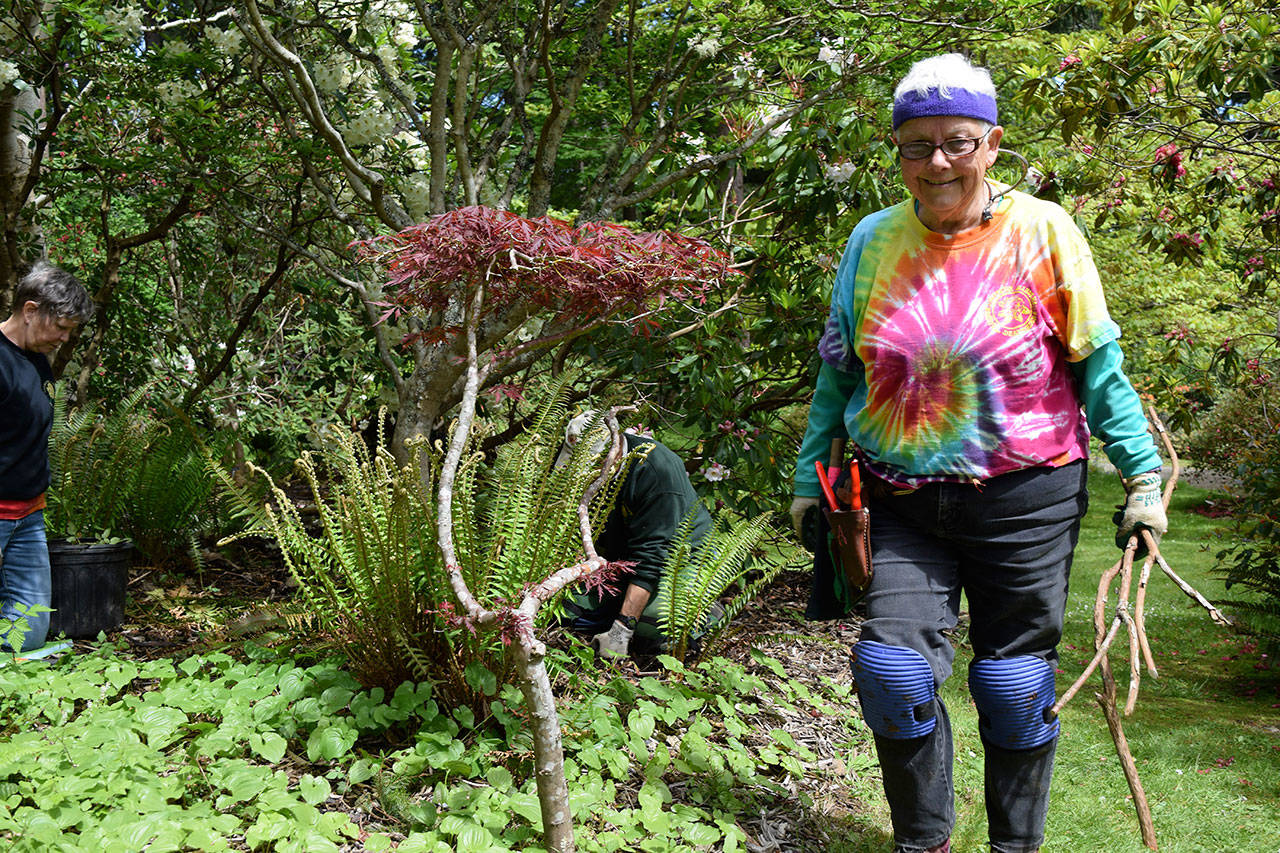To some, gardening isn’t so fun. It entails dirty hands and sore joints the following day.
But, for the dedicated yet playful volunteers who make up the Grateful Deadheaders, a group that works to maintain Meerkerk Gardens, it’s a small price to pay for quality time with friends and nature.
It’s even therapeutic.
“Meerkerk Gardens is so special,” volunteer Arlee Anderson said. “It’s healthy for people to come to places like this for the fresh air and oxygen. Even though I’m volunteering, it’s better than therapy as far as I’m concerned.”
The work the Deadheaders do goes far beyond therapy, it’s crucial to the gardens’ success. In fact, the amount of work the volunteers complete is startling. In the past year, the gardens got a significant facelift; graveled trails have been constructed, others updated and the rhododendrons look as vibrant as ever. It’s currently peak bloom season, after all.
The gardens are a non-profit organization operating on a tight budget, and don’t have the manpower to maintain the 10 acres of display gardens and four miles of nature trails. The gardens have five employees on its payroll, four of which are part-time workers. Meerkerk employees receive some help in the form of Washington State Extension’s master gardeners, who are required to volunteer there for at least six hours. Not all come back after completing the required time, and the Deadheaders pick up the rest of the slack.
Simply put, the gardens need the extra hands.
“I see the work we do with the volunteers as symbiotic and holistic,” Garden Manager Frank Simpson said. “We couldn’t do all this work without them. They do just about everything at the gardens.”
Although it may seem like the Grateful Deadheaders are staunch followers of the rock band, they’re a group of volunteers who can be seen pruning rhododendrons, trimming hedges and weeding at Greenbank’s Meerkerk Gardens every Thursday morning from 9 a.m. to noon. The name is a homage to a gardening technique that involves removing fading flowers, which encourages plants to grow and maintain their appearance. To poke fun at the terminology, the volunteers often wear tie-dye shirts.
Many of the volunteers are retirees and master gardeners with Washington State University Extension, but some wouldn’t describe themselves as experts. The group remains open to volunteers of varying skill level, even those looking for a reason to spend time at the lush gardens overlooking Holmes Harbor.
“We come from all walks of life and make up a fun group,” volunteer Barbara Douglas said.
“Our oldest volunteer is in his 80s, and he regularly climbs up trees and uses a chainsaw to clear up branches and brush,” Anderson said. “He’s always here at dawn before any of us come, since he likes to work alone as his hearing isn’t good. He always leaves a pot of coffee for us when we come in the mornings.”
It’s evident the volunteers dedicate hours to get dirty partially because it’s a good time. The volunteers are a laid back bunch who frequently exchange jokes, pull each other’s legs and share a passion for gardening. Anderson says one doesn’t need to be a skilled gardener to fit in, and all are welcome. In fact, she says more help is always welcome since there’s always something to do, regardless of the season.
According to Douglas, it’s perfect for many retirees.
“The most important thing is to make an impact with the garden, but you also get the camaraderie and friendship,” Douglas said. “For retirees, it’s perfect because many of us have time on our hands, and this is the perfect place to make an impact for a nonprofit.”
“It’s a nice way to stay active and fresh in the mind and body.”


